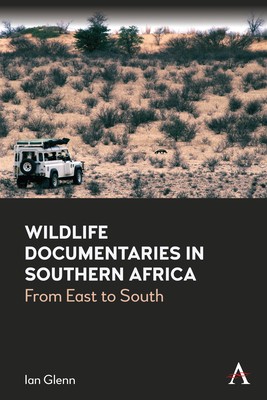
- We will send in 10–14 business days.
- Author: Ian Glenn
- Publisher: Anthem Press
- Year: 2022
- Pages: 250
- ISBN-10: 1839981504
- ISBN-13: 9781839981500
- Format: 15.2 x 22.9 x 1.8 cm, hardcover
- Language: English
- SAVE -10% with code: EXTRA
Reviews
Description
This study examines why the Kruger Park struggled to become a leading venue for wildlife filmmaking and then, paradoxically, at a time when South Africa came under increasing political and military pressure, wildlife filmmaking took off very successfully. Another paradox is that the growth in wildlife filmmaking also paralleled the growth of wildlife hunting in Southern Africa.
The study turns to Actor-Network theory to examine the complex interplay between local filmmakers, international commissioning agents like Mike Rosenberg, international broadcasters and the animals involved. It argues that Southern African filmmakers were often able to aim successfully both at European and North American markets and points to ways in which innovations from Southern Africa influenced broadcasting trends internationally, particularly in the move away from a British blue-chip BBC ethos and style.
It concludes with an examination of Africam and WildEarth and the vision of founder Graham Wallington about the future of wildlife documentary.
EXTRA 10 % discount with code: EXTRA
The promotion ends in 16d.13:41:12
The discount code is valid when purchasing from 10 €. Discounts do not stack.
- Author: Ian Glenn
- Publisher: Anthem Press
- Year: 2022
- Pages: 250
- ISBN-10: 1839981504
- ISBN-13: 9781839981500
- Format: 15.2 x 22.9 x 1.8 cm, hardcover
- Language: English English
This study examines why the Kruger Park struggled to become a leading venue for wildlife filmmaking and then, paradoxically, at a time when South Africa came under increasing political and military pressure, wildlife filmmaking took off very successfully. Another paradox is that the growth in wildlife filmmaking also paralleled the growth of wildlife hunting in Southern Africa.
The study turns to Actor-Network theory to examine the complex interplay between local filmmakers, international commissioning agents like Mike Rosenberg, international broadcasters and the animals involved. It argues that Southern African filmmakers were often able to aim successfully both at European and North American markets and points to ways in which innovations from Southern Africa influenced broadcasting trends internationally, particularly in the move away from a British blue-chip BBC ethos and style.
It concludes with an examination of Africam and WildEarth and the vision of founder Graham Wallington about the future of wildlife documentary.


Reviews